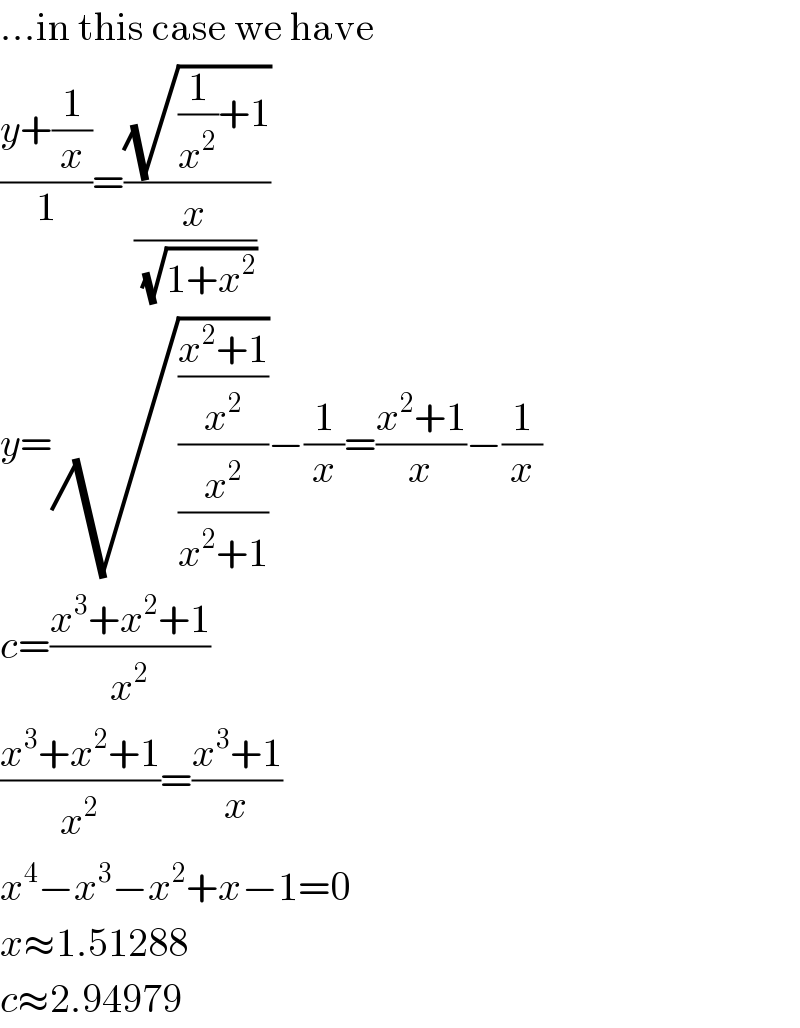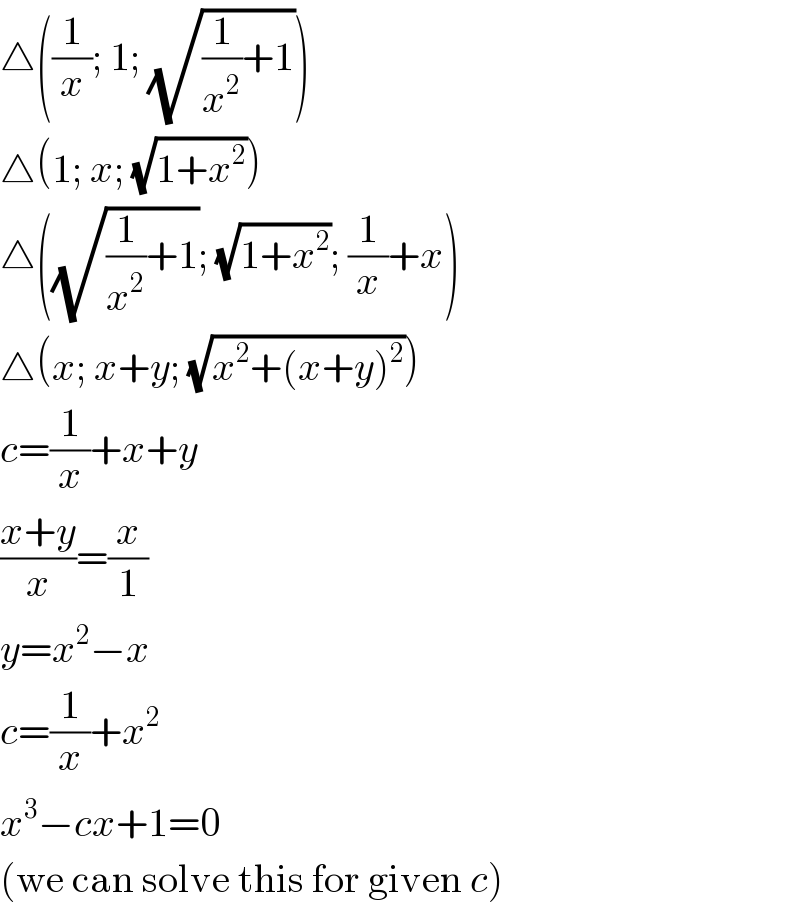
Question and Answers Forum
Question Number 40255 by ajfour last updated on 17/Jul/18

Commented by MJS last updated on 17/Jul/18

Commented by MJS last updated on 18/Jul/18

Answered by MJS last updated on 17/Jul/18

Commented by ajfour last updated on 17/Jul/18

Commented by MJS last updated on 17/Jul/18

